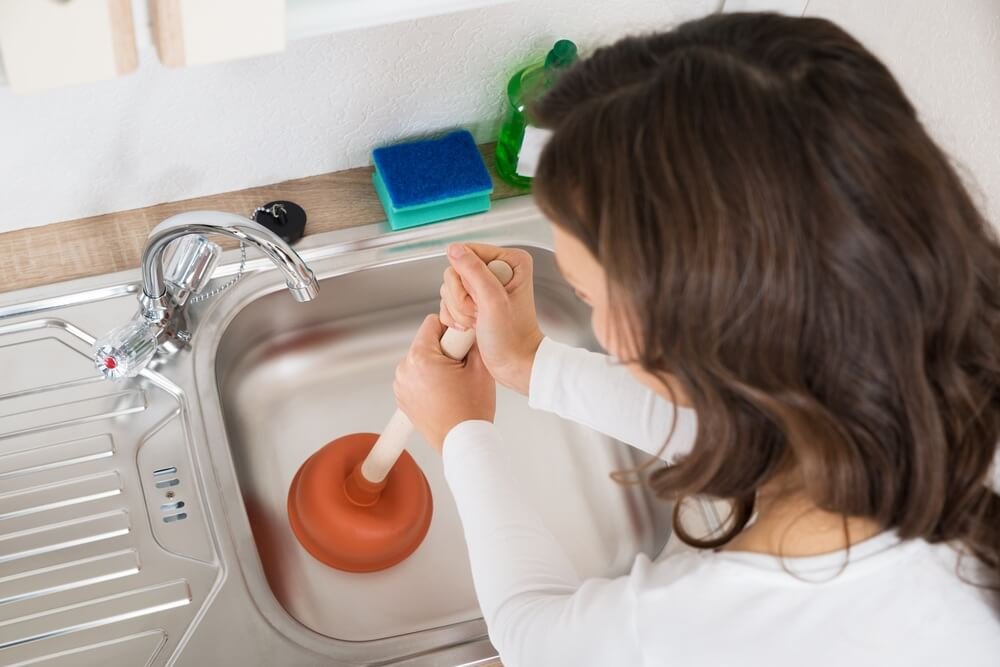Ever poured water down the sink, expecting it to swoosh away seamlessly, only to face a pool of stagnant water? Or how about waking up early to a refreshing shower, but instead, you’re ankle-deep in the soapy residue? Sound familiar? If this has happened to you more times than you can count, it might be time to delve into the murky world of blocked drains.
Welcome! As we traverse the labyrinth of plumbing, we’ll unearth the common reasons behind these uninvited nuisances. By understanding the usual suspects, we’ll arm ourselves with knowledge that will not only help us avoid future blockages, but also keep our plumbing system in tip-top condition.
Buckle up as we take a voyage down your drains, dispelling any myths, uncovering facts, and providing you with essential insights into maintaining a healthy plumbing system. Let’s get started!

Why Drains Clog Often
Let’s begin by addressing the elephant in the room – why do drains block so often? Do the pipes hold a grudge against us? Well, not really!
The reason rests on two primary factors: daily usage and the substances we wash down our drains. Take a kitchen sink for instance. Everyday use washes down leftover food particles, grease, oils, and other materials which over time, can solidify and cause blockages. Remember, your drain is not a trash bin!
Similarly, in the bathroom, the most notorious culprits are hair clumps, soap residues, and misplaced objects. Over time, hair and soap accumulate onto the pipe walls, eventually leading to congestions and blockages. We are all guilty of it, and its high time we revisit and revise our plumbing etiquette!
What are the Signs of a Blocked Drain?
Now, how do you know if your drain is blocked and not just slow? Because there’s a stark difference between the two.
Tell-tale signs of a blocked drain extend from sluggish draining water to foul smells emanating from the pipes. Gurgling noises are also common as air bubbles rise amidst blockages. Another hint could be recurrent clogs; if you find yourself battling the same drain over and over, it is more than just a hiccup!
Spotting these signs early could save you from plumbing catastrophes down the road. Remember, what starts as a minor inconvenience, if left unresolved, can quickly escalate into a situation none of us want – Water Damage.
The Unseen Issue: Tree Roots
Tree roots? In your drains? As unbelievable as it sounds, it’s a more common blockage cause than we might wish to believe.
As we know, tree roots seek sources of water, nutrients, and oxygen – essentially what a sewer pipe presents. A tiny leak provides enough moisture to attract these roots. As they infiltrate the pipes, they take up space, catch substances flowing through, and – voila – a blockage!
Knowing this, it is essential to consider your home’s surrounding flora when addressing recurring drain problems. Being mindful of where you plant your green friends could save you from a root-ridden drain nightmare.
The Dangers of Chemical Drain Cleaners
In the quest to unblock our drains, chemical drain cleaners often seem like the easiest solution. But did you know that they pose an even bigger threat?
These cleaners work by eating away at clogs. Conversely, they also corrode your pipes. Continual use can lead to leaks and exacerbate the existing problem. Besides, they’re a significant environmental pollutant.
Opting for safer, more environmentally-friendly options like drain snakes or enzyme-based cleaners could be a game changer for maintaining your pipes’ health and cleanliness.
The Role Grease Plays in Blocked Drains
Grease, the formidable villain in the world of blocked drains! But how does something liquid-based cause such massive blockages?
Grease, although liquid when hot, solidifies when cooled and sticks to your pipes. Over time, this accumulation narrows the drain passage, eventually leading to clogs. Imagine it as cholesterol in human arteries…scary thought, isn’t it?
By becoming more aware of what we wash down our drains, we can protect our pipes from these ‘drain-heart attacks.’

Conclusion
As we now understand, blocked drains are not some alien invasion but a result of our routine actions coupled with environmental factors. Awareness and thoughtful usage can go a long way in ensuring a smoother and ‘clog-free’ journey for everything we flush down our pipes.
Remember, every item you wash away isn’t ‘out of sight, out of mind’; it might quietly be forming a blockade somewhere deep within your plumbing system. It’s high time to rethink and revise our practices because unblocking drains does not have to be a ‘routine’ if we take the necessary preventive measures.
Whether it’s avoiding the disposal of grease in our kitchen sinks, understanding what should and shouldn’t go down our toilet, or being mindful of the green landscape near our dwellings, every little effort counts. Let’s not wait for our drains to protest in the form of a blockage and instead adopt drain-friendly habits – starting today!



